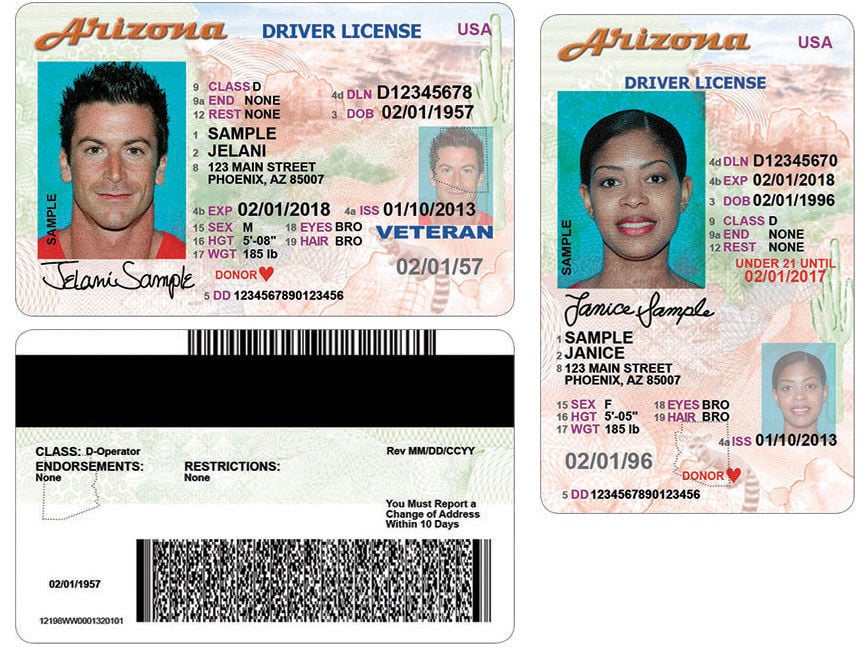PHOENIX — Arizonans will have at least five more years to board commercial aircraft without getting a special new driver’s license.
The Department of Homeland Security has approved a request by the state Department of Transportation for more time to craft a license that complies with the federal Real ID Act. The new deadline is now April, ADOT spokesman Ryan Harding said Wednesday.
Potentially more significant, Harding said once Arizona makes the license available, federal officials will give Arizona residents another 4ƒ years to get one of the new licenses.
He said federal officials won’t enforce the no-fly ban on those without one of the new secure licenses until October 2020. The same delay will apply for another provision of the federal law dealing with who can enter certain government buildings, Harding said.
But it will remain up to individual residents whether they want to apply for the new licenses — and pay the estimated $15 additional fee — or risk being grounded after the new deadline.
The issue of who gets to fly is an outgrowth of the Real ID Act, enacted by Congress and the Bush administration after the attacks on the World Trade Center and Pentagon by terrorists who hijacked aircraft. That law directed the Homeland Security to come up with requirements for secure documents for everything from getting into certain federal buildings to boarding commercial aircraft.
The agency’s answer was to recognize driver’s licenses only from states that follow certain procedures. These range from the issuing agency verifying the documents offered by the applicant to prove identity to ensuring the license itself cannot be altered.
But in 2008. Arizona lawmakers, reacting to concerns about a national ID card, specifically barred ADOT from creating a Real ID-compliant license.
What changed their minds is that federal officials said last year they could start enforcing the no-fly provision as early as this coming January.
That would have left Arizonans having to obtain a passport and carry it on all flights as the only other viable option. Inconvenience aside, a passport costs $110 plus a $25 application fee; expedited consideration is another $60.
So earlier this year the Legislature agreed to let ADOT create a license that meets the federal requirements. To keep from running afoul of the 2008 prohibition, though, the new law makes acquiring one of those new licenses optional.
And lawmakers added one other provision: a prohibition against RFID technology. That refers to “radio frequency identification,” essentially a way the license and its contents can be read remotely by someone with certain equipment. Such technology also would allow people to track the location and movements of the person who has the license.
Harding said the state probably is close to complying with the part of the law that requires the documents themselves to be secure from counterfeiting. Arizona redesigned its licenses last year, including things such as new holograms and raised lettering.
But Harding said ADOT still needs to make other changes behind the scenes. Many of those involve the state being able to verify the veracity of documents that applicants provide as proof of identification. Harding said the state needs to be able to link up to federal databases to cross-match the information.





